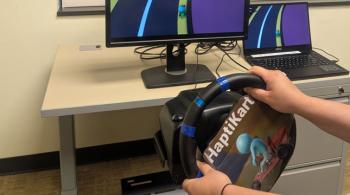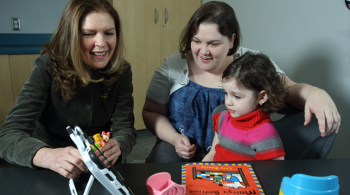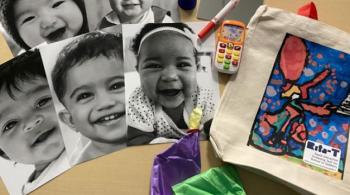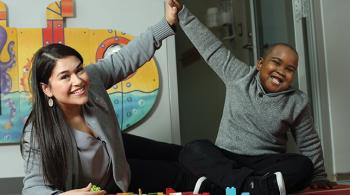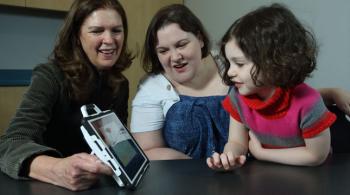Though autism is often not diagnosed until the age of three, some children begin to show signs of developmental delay before they turn a year old. While not all infants and toddlers with delays will develop autism spectrum disorders (ASD), experts point to early detection of these signs as key to capitalizing on early diagnosis and intervention, which is believed to improve developmental outcomes.
According to Dr. Rebecca Landa, director of the Center for Autism and Related Disorders at the Kennedy Krieger Institute in Baltimore, Md., parents need to be empowered to identify the warning signs of ASD and other communication delays.
"We want to encourage parents to become good observers of their children's development so that they can see the earliest indicators of delays in a baby's communication, social and motor skills," says Dr. Landa, who also cautions that some children who develop ASD don't show signs until after the second birthday or regress after appearing to develop typically.
For the past decade, Dr. Landa has followed infant siblings of children with autism to identify red flags of the disorder in their earliest form. Her research has shown that diagnosis is possible in some children as young as 14 months and sparked the development of early intervention models that have been shown to improve outcomes for toddlers showing signs of ASD as young as one and two years old.
Dr. Landa recommends that as parents play with their infant (6 - 12 months), they look for the following signs that have been linked to later diagnosis of ASD or other communication disorders:
- Rarely smiles when approached by caregivers
- Rarely tries to imitate sounds and movements others make, such as smiling and laughing, during simple social exchanges
- Delayed or infrequent babbling
- Does not respond to his or her name with increasing consistency from 6 - 12 months
- Does not gesture to communicate by 10 months
- Poor eye contact
- Seeks your attention infrequently
- Repeatedly stiffens arms, hands, legs or displays unusual body movements such as rotating the hands on the wrists, uncommon postures or other repetitive behaviors
- Does not reach up toward you when you reach to pick him or her up
- Delays in motor development, including delayed rolling over, pushing up and crawling
"If parents suspect something is wrong with their child's development, or that their child is losing skills, they should talk to their pediatrician or another developmental expert," says Dr. Landa. "Don't adopt a 'wait and see' perspective. We want to identify delays early in development so that intervention can begin when children's brains are more malleable and still developing their circuitry."




